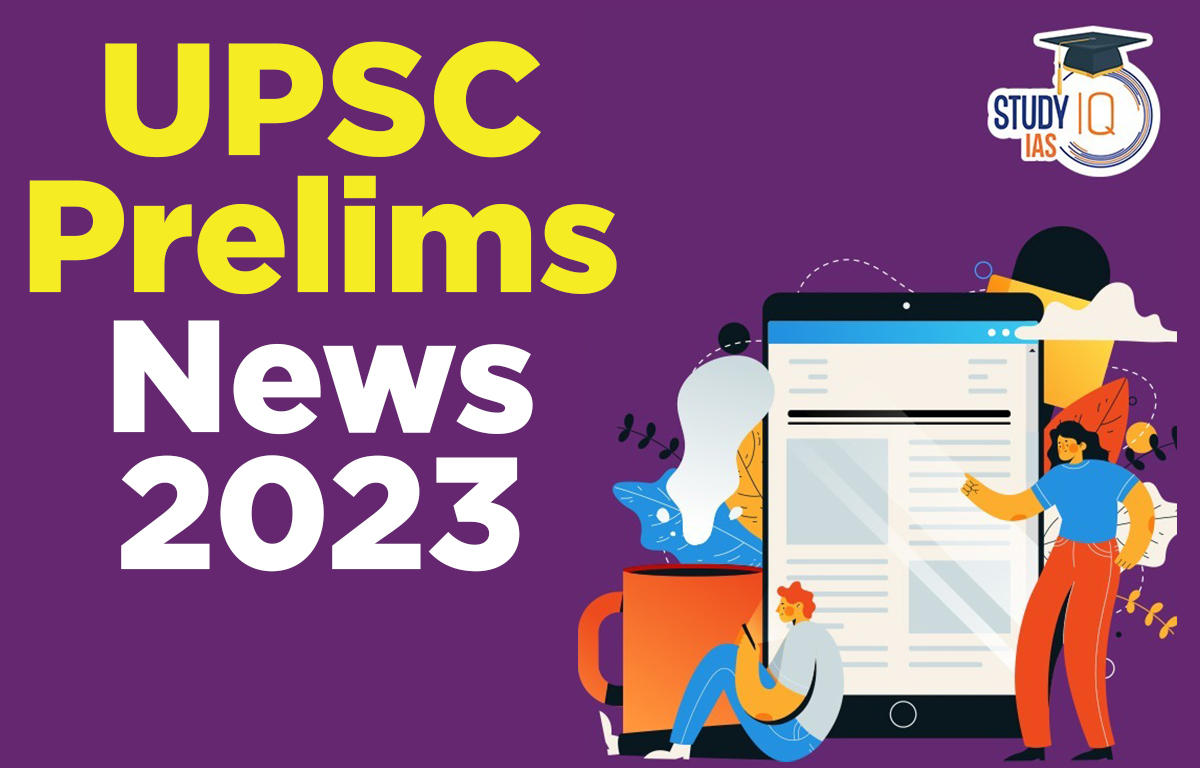Table of Contents
UPSC Prelims News of 20 March 2023
India-Bangladesh Friendship Pipeline
Context: Prime Minister of India and Prime Minister of Bangladesh have jointly inaugurated the India-Bangladesh Friendship Pipeline (IBFP) in a virtual mode.
About India-Bangladesh Friendship Pipeline:
- IBFP is the first cross border energy pipeline between India and Bangladesh with a capacity to transport 1 million Metric Ton Per Annum (MMTPA) of High-Speed Diesel (HSD) to Bangladesh.
- This is the second cross-border energy pipeline between India and its neighbours.
- India has such a cross-border pipeline with Nepal (Motihari-Amlekhgunj).
- Features: The 131.57-km-long pipeline will bring diesel from a marketing depot in Siliguri to Dinajpur of Bangladesh.
- Out of the total length of the pipeline, Bangladesh has 126.57 km and India has five kilometres.
- Implementation: Indian leg of the pipeline project will be implemented by Assam-based Numaligarh Refinery Limited and Bangladeshi leg will be implemented by Bangladesh Petroleum Corporation.
- Significance: The IBFPL project aims to facilitate the transportation of imported fuel oil and reduce its transport costs for Bangladesh.

UPSC Prelims News 18 March 2023
Background Radiation (BR)
Context: A pan-India study by scientists has found that, in parts of Kerala, background radiation levels are nearly three times more than what’s been assumed.
About Background Radiation:
- Types: Background radiations are the radioactive radiations such as alpha, beta, and gamma to which we all are exposed even in the absence of visible radioactive sources.
- Origin: Background radiation originates from a variety of sources, both natural and artificial.
- Sources: These include both cosmic radiation and environmental radioactivity from naturally occurring radioactive materials (such as radon and radium), as well as man-made medical X-rays, fallout from nuclear weapons testing and nuclear accidents.
- Acceptable limits: The International Atomic Energy Agency (IAEA) specifies maximum radiation exposure levels, and this has also been adopted by India’s atomic energy establishment.
- Public exposure of BR should not exceed 1 milli-Sievert every year; those who work in plants by virtue of their occupation shouldn’t be exposed to over 30 milli-Sievert every year.
Disadvantages of Background Radiations:
- Acute Radiation Syndrome from Large Exposures.
- Radiation Exposure leads to Cancer Risk.
- Radiation exposure is extremely harmful to children and foetuses.
- X-rays and gamma rays can travel through the body and deposit energy.

Abilympics
Context: Four students from India are participating in the 10th International Abilympics.
About Abilympics:
- Also called the Olympics of Abilities, the Abilympics allow persons with disabilities to prove their potential and talents in multiple domains including photography, web designing, painting, and, more.
- Japan was the first to organise a vocational skills contest for PwD in 1972.
- In 1981, almost a decade later, the First International Abilympics was held in Tokyo – Japan, to commemorate the United Nations International Year of Disabled Persons (IYDP).
- Since then, the Abilympics have been held every 4 years at various international host nations.
- Objective: Improve the vocational skills of people with disabilities so that they can actively participate in socio-economic activities.
10th International Abilympics:
- The 10th International Abilympics will be held in Metz, France.
- Competitions will be held in overall 45 Competitive skill categories, under ICT, Crafts, Hospitality, Services and Industry.
- NAAI has finalized 13 skill categories to participate in international competitions –
- ICT/Computers: Word Processing; Web Designing; Poster Designing; Photography Studio; Photography Outdoor
- Crafts: Painting, Embroidery
- Services: Jewellery Making; Tailoring; Dress Making
- Food: Bakery; Cooking, Restaurant Service.
National Abilympic Association of India (NAAI)
- NAAI is the nodal agency in India responsible to organize vocational skill competitions to discover and nurture the talent of persons with disabilities and create awareness in the society at large about their productive skills.
- Headquarter: New Delhi.
Shanghai Cooperation Organisation (SCO)
Context: India has suggested an action plan to mark 2023 as the year of tourism development in the SCO region at the tourism ministers’ conference in Varanasi.
About the Conference
- The conference in Varanasi was aimed at improving tourism. A joint action plan was finalized and approved, which aimed to implement the agreement between the Member States on cooperation in the tourism sector.
- The SCO has declared Varanasi as the first tourism and cultural capital of SCO.
- The plan comprises of:
- Promotion of the SCO tourism brand
- Promotion of the cultural heritage of member states
- Sharing of information and digital technologies in tourism
- Promotion of mutual cooperation in medical and health tourism
- Activities to be undertaken: SCO tourism exhibition, SCO Food Festival, webinars and seminars on tourism, conference and expert sessions on promotion of tourism in the region.
About SCO
- Shanghai Cooperation Organisation (SCO) is an intergovernmental organisation established on June 15, 2001 in Shanghai, China.
- The Headquarters of SCO is located in Beijing.
- Objective: SCO aims to form a multilateral association to ensure security and maintain stability across the Eurasian region, come together to counteract emerging challenges and threats, and enhance trade, as well as cultural and humanitarian cooperation.
- Members: China, Russia, Kazakhstan, Kyrgyzstan, Tajikistan, Uzbekistan, India and Pakistan. India is currently the chair of SCO.
- Observers: Afghanistan, Iran, Belarus, and Mongolia. The process of granting Iran “Member State” status has already been started.
- Dialogue partners: Armenia, Azerbaijan, Cambodia, Nepal, Sri Lanka and Turkey. Saudi Arabia, Qatar and Egypt will also be granted the status soon.
- Functions of SCO: The primary function of SCO is to address security-related concerns, with special focus on regional terrorism, ethnic separatism and religious extremism at the top.
- Through Regional Anti-Terrorist Structure (RATS), which was founded in 2004, the SCO members share crucial intelligence, knowledge, legal expertise as well as allow for extradition of terrorists.
- SCO also has a form of military cooperation with Member States holding joint military exercises and ‘war games’.
- SCO promotes cooperation in the fields of economics and culture, with focus on regional development for tackling security issues.
- SCO has closely worked with various UN organizations to address various serious global issues.

RATS:
- It is a permanent organ of SCO that aims to ensure security of the SCO member states from transnational crimes associated with terrorism, illegal migration and trafficking of drugs, weapons, explosives, etc.
- It facilitates coordination between the SCO member states in the fight against terrorism, extremism and separatism.
- Headquarters of RATS is in Tashkent, Uzbekistan.
Inflation and Associated Concepts
Context: The RBI Governor has said that the worst threat of inflation has been reduced.
- Inflation: Inflation is defined as increase in prices of goods and services over a period of time. Inflation reduces purchasing power of currency.
- Deflation: Decline in inflation rate is called as deflation. It is also called as negative inflation.
- Recession: Decline in economic activity (negative growth) in a given period of time is termed recession.
- Technical recession: An economy enters a technical recession if there have been two consecutive quarters of negative growth.
Types of Inflation:
- Cost-push inflation: Cost-push inflation is fuelled by increases in the cost of producing goods and services, rather than by increase in aggregate demand.
- Demand-pull inflation: Demand-pull inflation occurs due to rise in aggregate demand, because of expansionary policies of the government.
- Built-in inflation: It occurs when workers demand for raise in wages to help maintain their living costs, because of increase in prices of goods and services.

Reasons for Inflation:

Effects of Inflation
- Reduces purchasing power of households.
- Rise in inequality as profits for business owners and entrepreneurs rise while purchasing power of poor sections decrease.
- Increase in cost of projects due to increase in cost of raw materials.
- Depreciation of domestic currency due to lower purchasing power parity.
- Export loses competitiveness due to increase in cost of raw materials.
- Increase in inflation rate reduces bond yields.
Measures to Control Inflation
- Controlling money supply through monetary policy measures, such as increasing repo rate, CRR, SLR.
- Increasing taxes so as to reduce disposable income, thereby controlling demand.
- Banning export of certain commodities, especially food, so as to control prices.
- Reducing import duties on high-demand imported goods such as vegetable oil and petroleum.
- Appreciation of domestic currency exchange rate to reduce import cost of essential goods.
Inflation Indices:

International Criminal Court (ICC)
Context: An arrest warrant was issued by the International Criminal Court (ICC) against Russian President for the alleged war crimes in Ukraine.
About the ICC
- The ICC is an intergovernmental organization formed as a standing body to investigate war crimes, genocide and crimes against humanity under the Rome Statute of 1998.
- Powers and jurisdiction of ICC:
- ICC has powers to try individuals charged with the gravest crimes of concern to the international community: genocide, war crimes, crimes against humanity and the crime of aggression.
- ICC can prosecute the most heinous crimes only when a country’s own legal machinery fails to act.
- The said offences should have been committed either in a country that ratified the agreement or by a national of a ratifying country.
- ICC can also exercise jurisdiction over cases referred to it by the UN Security Council.
- Minimum age of the accused for prosecution must be eighteen years at the time of commission of the offence.
- However, ICC does not have any retroactive authority over crimes that were committed before the Statute was enforced.
ICC vs ICJ
| International Criminal Court (ICC) | International Court of Justice (ICJ) |
| The ICC is a criminal tribunal that will prosecute individuals accused of grave crimes. | International Court of Justice (ICJ) is a civil tribunal that hears disputes between countries. |
| ICC is independent but may receive referrals from UNSC. | ICJ is the official court of United Nations. |
| ICC has jurisdiction over issues such as genocide, crime against humanity, crime of aggression etc. | ICJ has jurisdiction over disputes such as sovereignty, maritime disputes, treaty violation, treaty interpretation etc. |
| The ICC derives its powers from the Rome Statute. | ICJ derives its powers from the Charter of the United Nations. |
| Assembly of States Parties, which is the court’s governing body, elect judges to the ICC. | The UN General Assembly and the UN Security Council elects judges to the ICJ. |
Matsya 6000
Context: The National Institute of Ocean Technology is set to spearhead a 6,000-metre dive into the Indian Ocean, a mission to explore marine biodiversity and potential of the seabed.
Background
- Union Cabinet in 2022 approved the Rs 4,000 crore ‘Deep Ocean Mission’ to be piloted by the Ministry of Earth Sciences.
- Samudrayaan mission is aimed at sending three personnel to 6000-metre depth in a vehicle called ‘MATSYA 6000’ for the exploration of deep sea resources like minerals.
About Matsya 6000
- It is a manned submersible, designed to carry three people in 2.1 meter diameter Titanium Alloy Personnel Sphere, is being developed by the Ministry of Earth Sciences and NIOT, Chennai, under the aegis of Deep Ocean Mission.
- It will have an operational endurance of 12h and systems to support emergency endurance up to 96h for deep ocean exploration of non-living resources such as polymetallic manganese nodules, gas hydrates, hydro-thermal sulphides and cobalt crusts, located at a depth between 1,000 and 5,500 meters.
- It is capable of floating underwater and collected soil and rock samples from the seabed with attached robotic arms.
Significance of Matsya 6000
- Explore the potential of the seabed for precious metals: International Seabed Authority has allocated about 75,0000 square kilometres in the Central Indian Ocean Basin (CIOB) to conduct exploratory mining.
- Preliminary estimates indicate that 380 million tonnes of such nodules comprising copper, nickel, cobalt and manganese are available here.
- Scoping marine biodiversity: United Nations passed a treaty seeks to protect 30% of the world’s ocean by 2030.
- Aim: To conserve marine environments and regulate mining and commercial prospecting in the high seas, or parts of the ocean that are beyond the zone where a country has exclusive operating rights.
- CIOB is also part of the high seas, which encompass about two-thirds of the earth’s oceans.

MQ-9 Reaper Drone
Context: Recently, United States Air Force (USAF) MQ-9 Reaper unmanned aerial vehicle (UAV) was brought down over the Black Sea after a Russian Su-27 fighter jet collided with the drone’s rear propeller.
- The US has been using MQ-9 Reapers over the Black Sea region for a long time to gather intelligence on Russian naval forces.
About MQ-9 Reaper Drone
- Manufactured by General Atomics, the MQ-9 is a large unmanned aircraft that is 11 meters long with a wingspan of over 22 meters.
- While the USAF uses it primarily as “an intelligence-collection asset,” it can also perform precision strikes against “high-value and time-sensitive targets.”
- Reaper can carry as many as 16 Hellfire missiles, equivalent to an Apache helicopter’s payload capacity.
- The drone is remotely operated by a two-person team comprising a pilot and an aircrew member who manages sensors and guides weapons.
- The MQ-9 is the first hunter-killer UAV designed for long-endurance, high-altitude surveillance.
India’s Links
- Su-30MKI: It is the backbone of the Indian Air Force fighter strength, is a derivative of the Su-27.
- MQ-9 Reaper Drone: Indian Navy is currently operating two MQ-9As on lease.



 UPSC Prelims News 18 March 2023
UPSC Prelims News 18 March 2023
 UPSC Prelims News 17 March 2023
UPSC Prelims News 17 March 2023

















